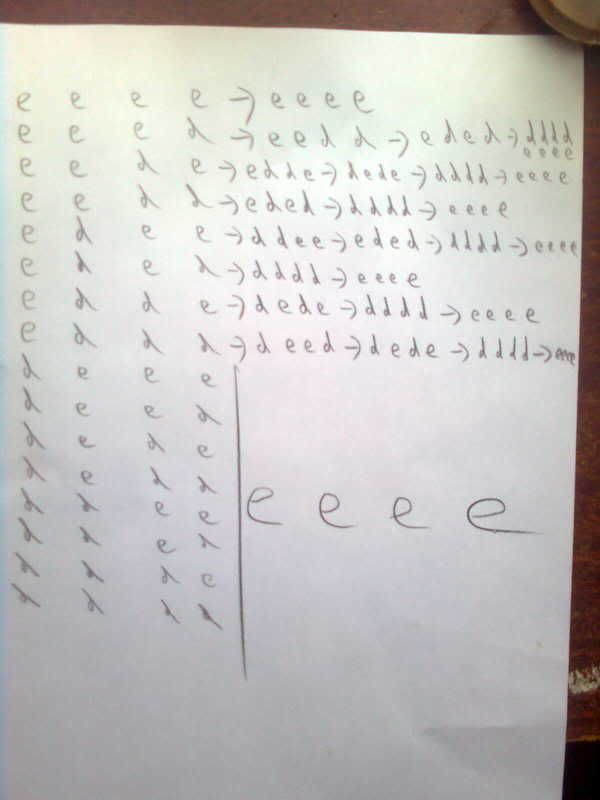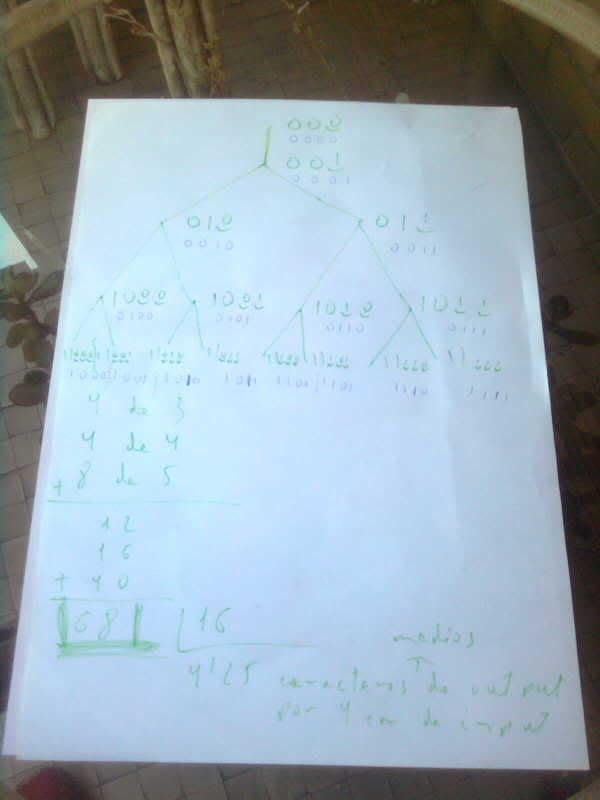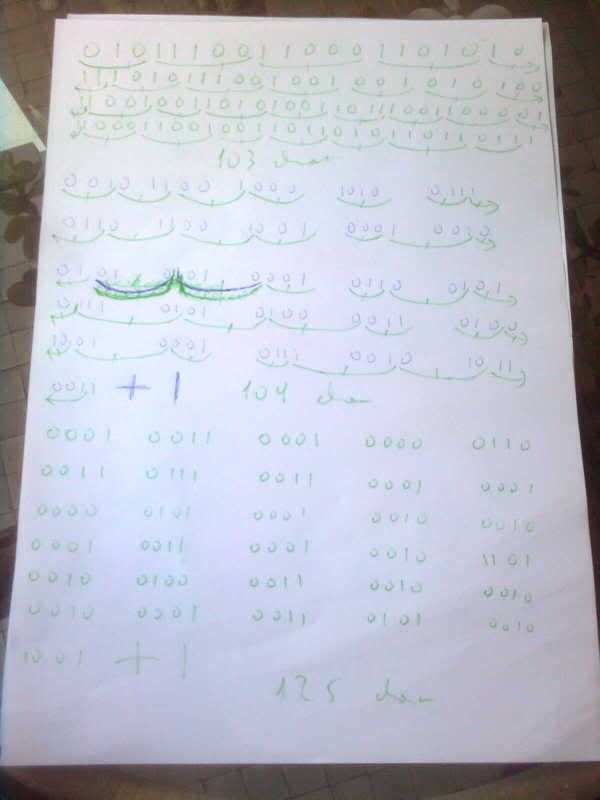
 |
|
#1
|
||||
|
||||
|
i take a binary number and transfrom it into a new number by comparing each digit with the next and the last one with the first, it can be equal , e or disiqual, d
for example the number 0101 in the first transformation becomes dddd and in the second transformation eeee well a binary number eventually transforms to all equal after a number of this transformations check it out:  i think this only works with a number of digits power of 2 i think i have a method to transform four digits binary numbers which i suppose can be done recursively till certain limit in the language translation it seems to go from 4 bits to 4.4 bits i was disapointed when i discovered i had actually found out a way to translalte increase the size of info but as i went to bed i thought hey wait you can do it both ways around in this language the first two digits tell the number of trasnsformations and how many digits read after in zero and one transformation so 00 or 01 the order is to read one more digit and then start next number in 2 transformation read two more digits before starting next number and so on after the transformation number it comes in what way did the transformation for example eeee will have zero transformation so it will be 00e dddd will be 00d dede will be 01d but it could have been 01 e so it can account i think and hope for any string of digits deed 10dd deee 11 ddd actually this language the size of info is greater in a random secuence like 4 and 4.4 proportion i seem to rememebr but the key is that it could be reverse translator so it would be a compiler that could be used recursively till it was not so random edit: i think the key of this language for it taking average more size its its varying size numbers for example eeee its 00e and dddd 00d but as the pc read the first 2 digits being 00 its told to read just one more digit before starting next number deed would 10dd being the first two digits 10 its told to read just two more numbers if it was deee it would translate 11ddd the 11 tells it to read 3 digits afterwards and what takes 64 bits in normal binary language takes 68 bits average on this language edit: the thing is not the transformation but expresing the number on basis of the tree the first number develops a second number the second number divides in two more numbers which divide each in two more and so on. thats why those trans work with power of two digits so with the first two digits express the height of the number wether its the trunk of the tree or certain branch the first tow digits also tells how many more digits to look for to find the determined part of the branch but the thing is that the translation fits perfectly theres no void info nor repettition, it fits by sheer luck
__________________
 2.4ghz dual core cpu 2.4ghz dual core cpu3gb ram ASUS Radeon EAH4650 DI - 1 GB GDDR2 I PREFER TO LOVE WITHOUT BEING LOVED THAT NOT LOVE AT ALL Last edited by raaaid; 10-11-2011 at 11:12 AM. |
|
#2
|
||||
|
||||
|
here the translator
 and here a two times recursive translation  could this be recursive to infinity so million bits get condensed in some tenths?
__________________
 2.4ghz dual core cpu 2.4ghz dual core cpu3gb ram ASUS Radeon EAH4650 DI - 1 GB GDDR2 I PREFER TO LOVE WITHOUT BEING LOVED THAT NOT LOVE AT ALL |
|
#3
|
||||
|
||||
|
lol.. did you say you didn't have a woman in your life?.. HELLO!!
You need to get out more! |
|
#4
|
||||
|
||||
|
my plan is to leanr how to win at a casino vegas sorrounded by chicks
__________________
 2.4ghz dual core cpu 2.4ghz dual core cpu3gb ram ASUS Radeon EAH4650 DI - 1 GB GDDR2 I PREFER TO LOVE WITHOUT BEING LOVED THAT NOT LOVE AT ALL |
|
#5
|
||||
|
||||
|
The thing about compression is you have to be able to uncompress to only the data you started with. If you can get something else out, then that's not good enough.
|
|
#6
|
||||
|
||||
|
Quote:
|
|
#7
|
|||
|
|||
|
Simple, learn how to count cards and play only Blackjack. It's the only way to win using skill in a casino.
|
 |
|
|